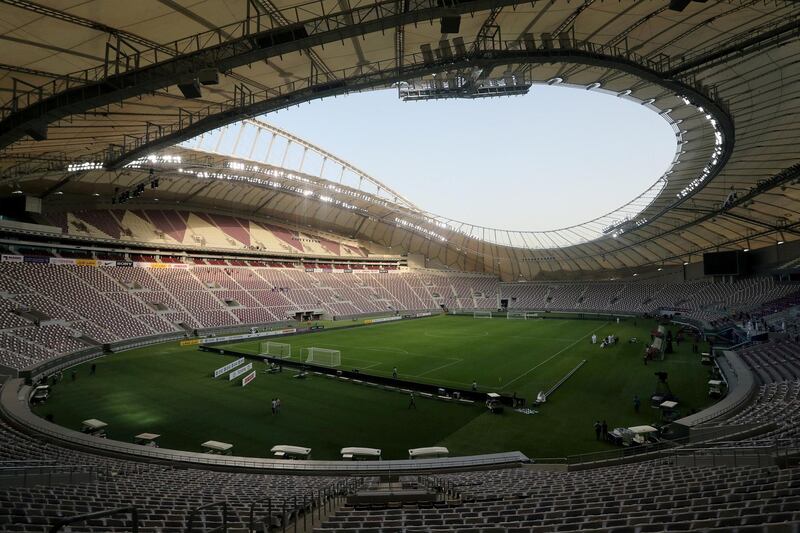Pressure on Fifa to strip Qatar of the 2022 World Cup will be overwhelming if the latest revelations of a “black ops” PR campaign expose criminal activity such as computer hacking, says a campaigner against corruption.
Jaimie Fuller, who set up the Foundation for Sports Integrity, said he and others behind the drive to end corruption at the apex of sport have experienced the “hacking, bugging and surveillance” that is now alleged to have gone on within Qatar’s winning campaign in 2010.
Emails from a whistleblower showed that the Qatari bid team hired a New York public relations firm and former CIA agents to produce fake propaganda about rival campaigns of the United States and Australia. The emails, seen by The Sunday Times newspaper, suggest that the effort included attempts to use bloggers, journalists and experts to run negative stories about their rivals.
A call for an independent inquiry into the circumstances of both Russia and Qatar’s attempts to land the tournament was the centrepiece of a conference in London in May. This attracted support from players such as French footballer Louis Saha and Hope Solo, the American women’s goalkeeper. UK MP Damian Collins has called for the latest allegations to be investigated, while sports administrators Greg Dyke and Simon Johnson gave their support.
_______________
Read more:
England ready to take Qatar’s place for World Cup
Qatar World Cup PR executive worked for Syria's Al Assad
Qatar ran ‘black ops’ campaign to win World Cup
_______________
The chairman of sports clothing firm Skins, Mr Fuller has called for a full independent inquiry into a series of failings at Fifa as a first step to ensure its bidding process is no longer tainted.
"There are two sides to this now," he told The National. "There is the hacking, bugging and surveillance and the other piece is the bribery, which still needs to acknowledged and pursued."
Even if the inquiry took two years, Mr Fuller believes that would leave ample time to cancel Qatar’s hosting rights. The Australian tycoon believes that a ready-made alternative is a cross-border UEFA European Championship-style World Cup. He proposed the tournament could be hosted in Britain, France and Germany, with the final at Wembley Stadium.
Fifa officials reportedly looked at tearing up the deal with Qatar four years ago but shied away from the move, fearing litigation both from Qatar and commercial firms tied to World Cup deals.

“Fifa’s strategy is delay, taking responsibility for all that has gone on to the point that nothing can be done,” Mr Fuller said. “If Fifa was serious about getting to the bottom of what has happened it would be perfectly fine to withdraw the hosting rights."
Pointing to the notorious decision not to draw an inference from the destruction of computers related to Russia's bid to host the 2018 World Cup, the businessman said: "Russia was able to use 'a dog ate my homework' excuse and that will not do with the allegations of criminality relating to bribery and the Qatar bid."
Qatar officials have denied the allegations but Fifa has not commented. There are questions over whether an inquiry led by United States lawyer Michael Garcia had examined the emails released by the whistleblower.
The firm at the centre of the allegations, BLJ Worldwide, separated from its British parent BLJ London in 2010. Industry officials said the accusations – if borne out – would be a blow to the public relations business, which has tried to rebuild its reputation after the collapse of Bell Pottinger last year.
A leading member of the industry, Kim Sample, president of US trade body the PR Council, told PRWeek magazine that the reports were damaging. "It's so unfortunate when something like this happens because everyone is quick to think, 'oh, that's the PR industry'. It's sort of a blemish on the industry but it is not at all common behaviour," he said. "There are so many examples of firms that, even if they feel something is in an ethical grey area, will walk away from the business.
"At the PR Council we have ethical guidelines that people are signing on to on a regular basis. And we have a pretty strict policy that we would adhere to if a member of ours was engaged in something like this."
The head of the British industry association noted that BLJ Worldwide had not joined the available registers. "The allegations in The Sunday Times underline the importance of PR practitioners being accountable for their actions. It is telling that the company in question is held accountable to no association [or] code," said Francis Ingham, director general of the Public Relations and Communications Association (PRCA).
“So here's our message to the public, clients, media and decision-makers alike: if an agency has chosen to be unaccountable, you should ask yourself why, before engaging with them and their services."






